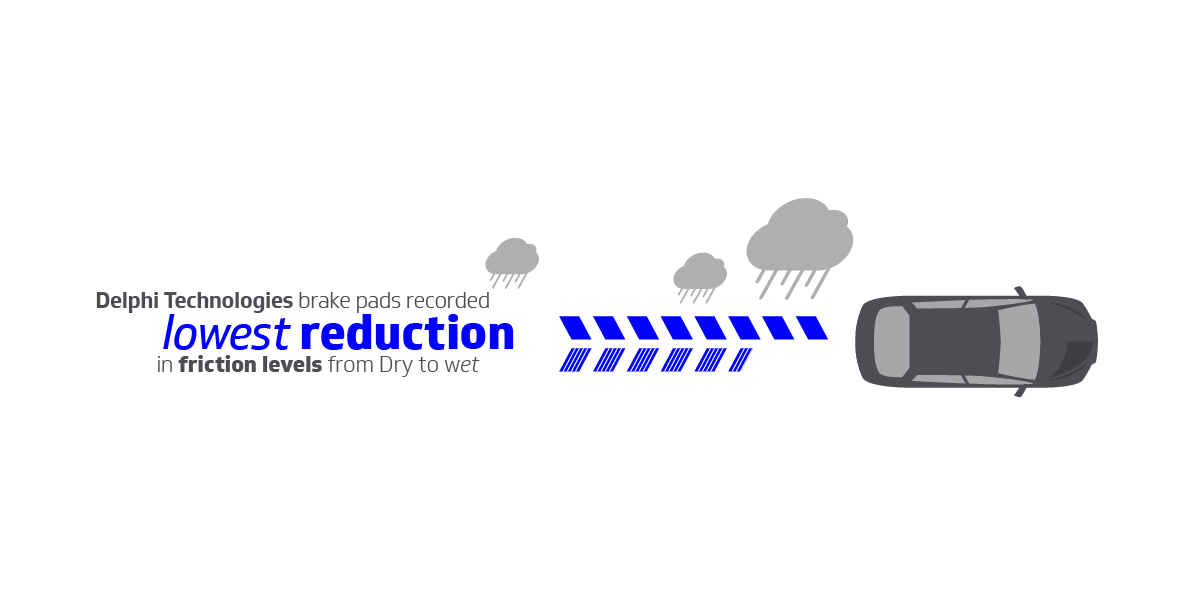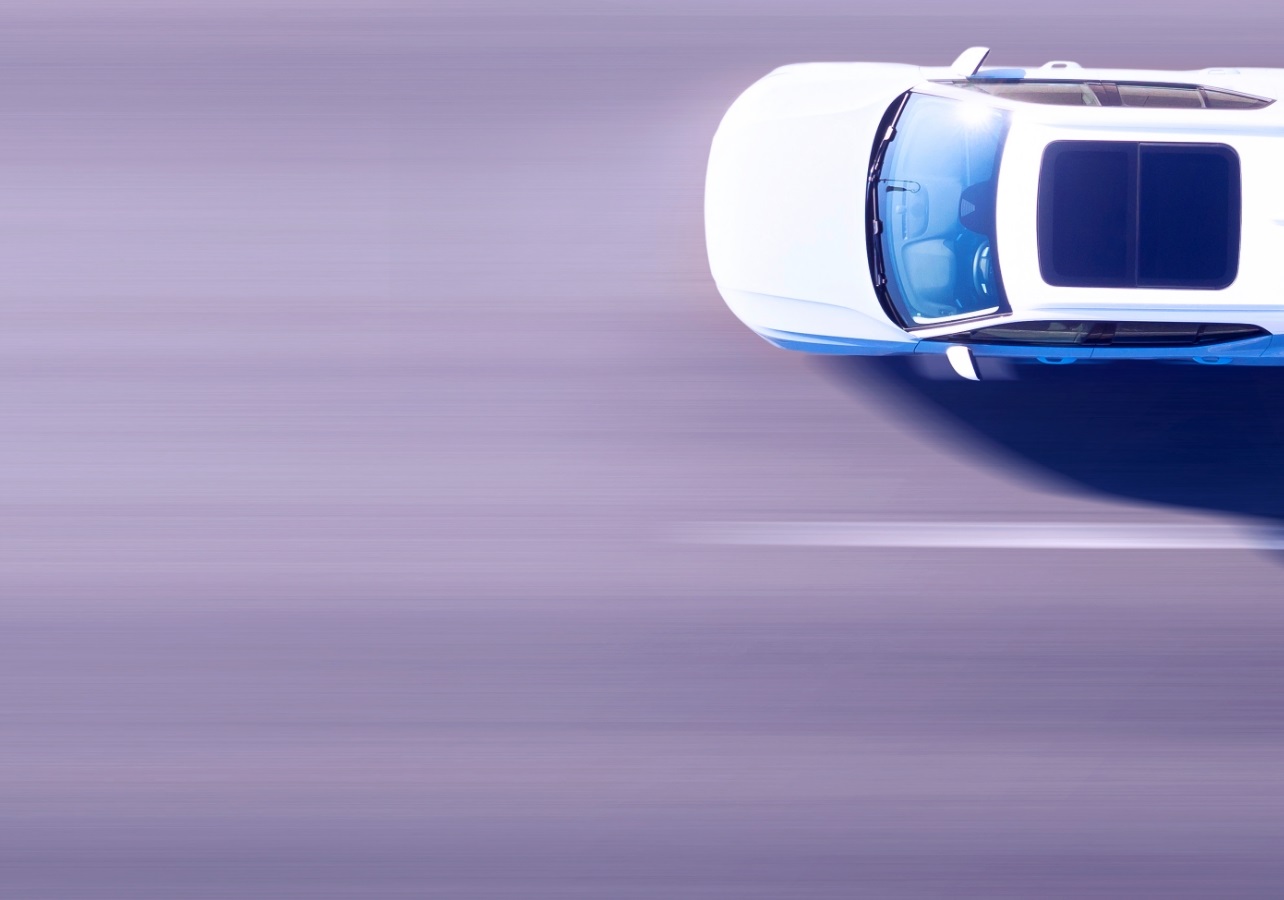Resource Highlights

Come rain or shine, our brake pads stop the quickest. We tested our pads in both the dry and the wet, and again the Delphi pad came out top with the lowest reduction in friction levels.
We know our pads stop quickest in the dry. But what about the wet? After all in wet, slippery conditions it’s equally important that your vehicle stops quickly and under control, if not more so. This is all down to the brake pads friction coefficient, or in simple terms the quality of friction material.
So we tested Delphi, the OE and six leading aftermarket brands, on a VW Passat 2.0 TSI in both dry and wet conditions. First six stops in the dry. Then water was sprayed on the brakes for ten minutes prior to and during another six wet brake applications. This time, the tests measure the reduction in friction performance from dry to wet – simply because whilst the weather may change, the pads performance shouldn’t change too much. In this instance, less is definitely better.

And that’s the case with the Delphi pad. It recorded the lowest reduction in friction levels from dry to wet out of all the competitors. An average of 30 percent across the six stops, compared with falls ranging from 34 percent, all the way up to 81 percent for the other brands. Importantly the Delphi pad recorded the same friction coefficient as the OE in dry conditions – the benchmark since the vehicles braking system is designed to work with the OE pad – but outperformed it in the wet.

Test Criteria:
- Fully bedded pads.
- Both dry and wet performance recorded as average value of 6 stops.
- All stops 50-19 mph with a pressure of 30 bar.
- Prior to wet stops, brake is sprayed with water for 10 minutes. All 6 stops are performed while water is sprayed on brakes.
- Car: VW Passat Variant.
- Engine: 2.0 TSI.
See how Delphi outperformed the competition in other key tests– stopping distances, noise and wear.
SIGN UP TO FIND MORE
Fill yp your details to hear more from our experts and get the latest updates from Delphi.



